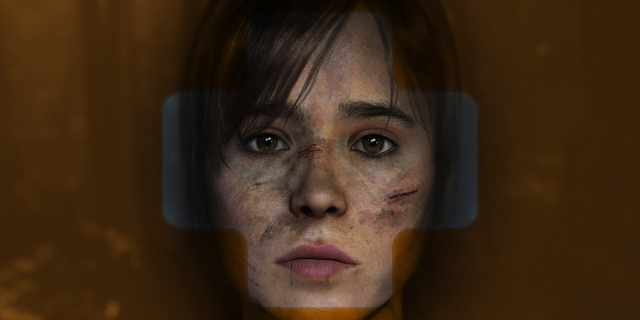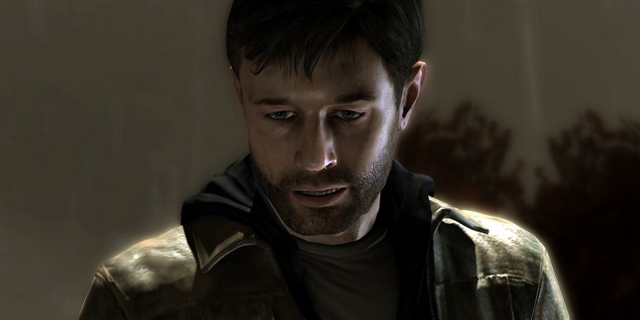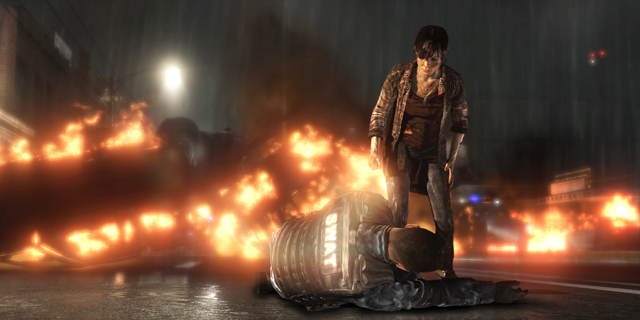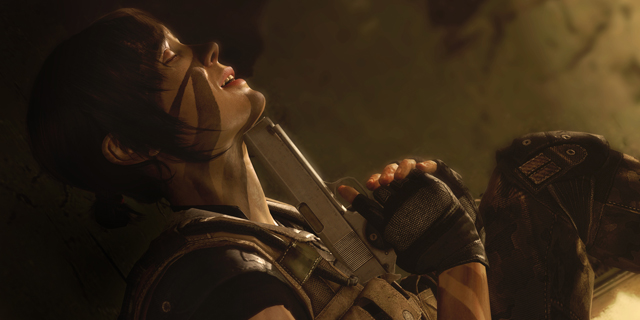
Whether or not you actually like the current movement of more narrative-focused games, such as the critically acclaimed Gone Home, it’s clear that it’s not going anywhere. Look at Quantic Dream, a team Sony has put a ton of weight (and money) behind, delivering experiences with high budgets and minimal gameplay. There is a place for these experiences in the industry, and they deserve our attention, yet certain games only highlight the fault of their stories when it becomes so much of the focus.
The recent Quantic Dream title, Beyond: Two Souls, has had people talking ever since its release in early October. The company’s last big project, Heavy Rain, not only saw critical success, but sold surprisingly well for a game so focused on story and not so much on delivering a typical gameplay experience. In my mind, Heavy Rain is exemplary of exactly what Quantic Dream does best as a development studio: a gripping narrative, strong (albeit basic) gameplay mechanics and characters that are easy to get behind.
There were some issues, mind you, including some very spotty voice acting and writing that tended to dance around obvious issues instead of addressing them head on. That said, it was a strong example of how to create a high-budget game focused entirely on delivering a narrative, and allowing you to make meaningful choices within that narrative. The actual mechanics, as simplistic (and sometimes mundane) as they were, made specific moments that much more intense and memorable as a result. I’ll never forget the trials the Origami Killer put Ethan through, and how much he (and, in some regards, we as the player) were willing to go to save his son.

I’ll never claim Heavy Rain has an amazing story, but it’s a well-constructed narrative that (almost) never oversteps its bounds and provides exactly the experience you would hope from a game like it. Sure, it’s grandiose, but it never once felt like it exceeded the scope of what it was attempting to do. It remained manageable throughout, even during the worst moments. It’s not as subtle or expertly crafted as a game like Gone Home, but it doesn’t need to be.
This is why Beyond: Two Souls remained one of my most anticipated releases of the year. I still consider Heavy Rain to be one of the better titles released this console generation, so Beyond, with its even higher budget, improved technology and recognizable actors, could have exceeded it in many ways. I had doubts it would surpass the likes of The Last of Us, Gone Home or even BioShock Infinite in terms of its actual narrative, yet it never needed to. Like Heavy Rain, it simply had to tell an entertaining story and make the act of playing through it immensely satisfying. It, unfortunately, suffered from something other Quantic Dream games managed to overcome.
Beyond’s biggest issue? It’s too ambitious, and features a narrative structure that reveals even more inconsistencies and mechanical issues that Heavy Rain managed to sidestep in the long run. It tells a story that spans essentially the entire life of a single character, but does so non-linearly in order to allow for better pacing. Truth be told, if the story were completely linear, you would have to suffer through many slow, sometimes tedious sections before getting to a ton of over-the-top, action-packed segments that would almost never let up. The decision to break up the story makes sense, but the plot itself crumbles as a result.

You quickly learn the huge difference between Beyond and Quantic Dream’s previous efforts. Unlike Heavy Rain, which focused on a specific group of characters and the hunt of a serial killer, Beyond becomes a game about saving the world. Sure, it’s actually about Jodie Holmes, the main character, and her connection with a spirit named Aiden, but there comes a point where Jodie has to, more or less, stop the potential destruction of the entire planet. That idea alone is what both sets the game apart and manages to tear it down entirely. It should be about a girl’s journey to adapt and overcome this spiritual force she is unable to understand, and in some ways it is, but at a certain point that becomes null and void and the world needs to be saved.
Jodie herself is a compelling character and you want to see her get the life she deserves, but every other character along the way is written poorly, even if it initially doesn’t seem that way. Characters will suddenly change their motivations or goals, becoming different people entirely, and the game’s narrative structure makes it hard for you to actually understand why or relate to them in any way. In an attempt to bridge the gap between a straightforward, character-driven story and one about a bigger, more spiritual force that exists beyond our world, the entire game collapses under the weight of its ambition. It’s still entertaining, sure, but I barely remember most of what happened a mere few weeks after finishing it.

The need to bring the narrative to the forefront is something that can be both a gift and a curse. On one hand, in the case of a game like Gone Home, you are exploring and discovering a story that has meaning, but never goes too far with its message or themes. It’s a title full of imagination and wonder and it allows its rather uncomplicated tale be told the way the developers want it to be. It never overextends itself and it never attempts to be more than it is. Heavy Rain is the exact opposite of Gone Home in its approach, and its writing isn’t nearly as strong, yet it achieves exactly what it set out to do in a similar fashion.
These are examples of how to work in this medium and use its strengths to your advantage. When you put your narrative in the forefront and want people to not only pay attention to it, but remember it, you need to understand that you can’t simply expect the interaction to make up for any weakness in the story. Beyond attempts to do this by throwing thrilling action sequences at you and distracting with some impressive mechanics, yet it can’t hide its mess of a story under glossy visuals and high production values.
So yes, narrative-focused games can work, despite their occasional warts, yet it can also be painfully easy to trip over a story while attempting to push it to the forefront. I will always applaud anybody who attempts to do something as ambitious as these projects because, unlike more gameplay-focused experiences, you can’t easily hide a poorly constructed plot behind mechanics, no matter how hard you try.



















